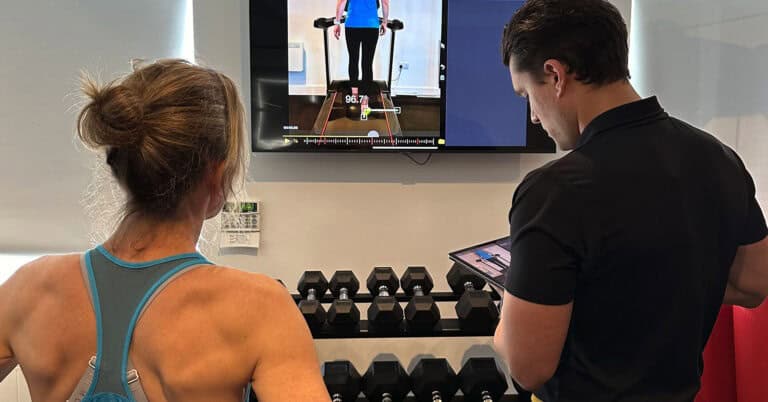The Definition Of Stress
As defined by the World Health Organisation (WHO), stress is “a state of worry or mental tension caused by a difficult situation. Stress is a natural human response that prompts us to address challenges and threats in our lives.”
Although the definition is geared more towards mental effects and a more negative outset on stress, there is good stress and bad stress. Stress also manifests itself in the body, not just the mind.
The body reacts to stress by releasing hormones (adrenaline and cortisol), which usually result in heart rate acceleration and tension in muscles, among other things.
Acute Stress
Most stress is considered acute – as a result of something that has happened, the body reacts immediately to it – think about fight or flight, when you are put in danger, that is acute stress.
Acute stress can also come from a significant bout of exercise or your routine workout. As you can see, not all stress is bad!
Chronic Stress
Stress that lingers and is as a result of a multitude of factors, such as lifestyle and life conditions can be called Chronic.
Some stress is required in our lives. Without it we can start to feel bored and a lack of purpose.
Too much stress or Chronic Stress, though, can lead to a series of complications. Imagine being in a state of fight or flight for long periods or many periods of your day.
How your body reacts to stress

Stress, if unchecked, will affect your mood, behaviours, and will affect aspects of the mind.
However, the effects of stress are not only constrained to your mind. It can also affects many of your body’s internal systems – Muscular, Respiratory, Cardiovascular, Nervous, etc
When we’re stressed, muscles tense up, there’s shortness of breath and rapid breathing. This is because the airway between the nose and the lungs constricts, leading to an increase in heart rate while increasing the amount of blood pumped through the body. Which if consistent can increase the risk of hypertension, heart attack or stroke.
Ways stress can manifest in the body (not an exhaustive list):
- Headache
- Muscle tension or pain
- Chest Pain
- Fatigue
- Upset Stomach
- Sleep Problems
How Sports Massage Can Help With Stress

If you think about fight or flight – this is your sympathetic brain (nothing to do with Sympathy!) taking over.
Massage on the other hand induces relaxation. Thus activating your parasympathetic brain, which in turn:
- Lowers stress hormones
- Increases blood flow and improved circulation
- Reduces contraction of muscles
- Increases tissue mobility
Depending on how you use massage, you can also do the opposite and activate your sympathetic system – if you are entering a competition or getting ready for an event – you may want a boost to your energy and a boost of adrenaline.
Massage has a raft of benefits, which include:
- Increased or improved recovery from physical activity
- Reduction in tension in your muscles, which in turn can reduce soreness and pain
- Improvement in posture, leading to less pain in the long run
- Improvement in your range of motion and muscle flexibility
- Boosting your mood and feeling of well-being
- And many more
Although some of the above may not target stress directly, you can imagine that if your body and mind are in a relaxed state, your blood flow improves, your recovery is high and your sleep is better – you have a higher chance of managing stress successfully.
Tips on managing stress levels

Now that you know what the benefits of massage are, I am sure you can’t wait to experience it or get the same experience again, if you already have done it before.
While you are waiting for your massage appointment day to come, here are a few tips and tricks to manage stress:
🍏 Watch what you eat
Apply the 80/20 rule – get your nutrients from whole foods and less from processed sources.
🧘♀️ Take time to reflect
Set time to reflect on your day or week through meditation or journaling.
💧 Stay Hydrated
Ensure you drink enough water throughout the day – see our euhydration article on more tips for achieving optimal hydration.
😴 Get enough Sleep
Get 7 to 9 h of sleep per night – could your sleep hygiene use some work? Check out our article on developing healthy sleep habits here.
Start relieving everyday stress with sports massage
Add sports massage to your line of defence against everyday stress today. Our sports massage team are available for 30 and 60 minute sports massage treatments in our Maidenhead and Winnersh clinics.


